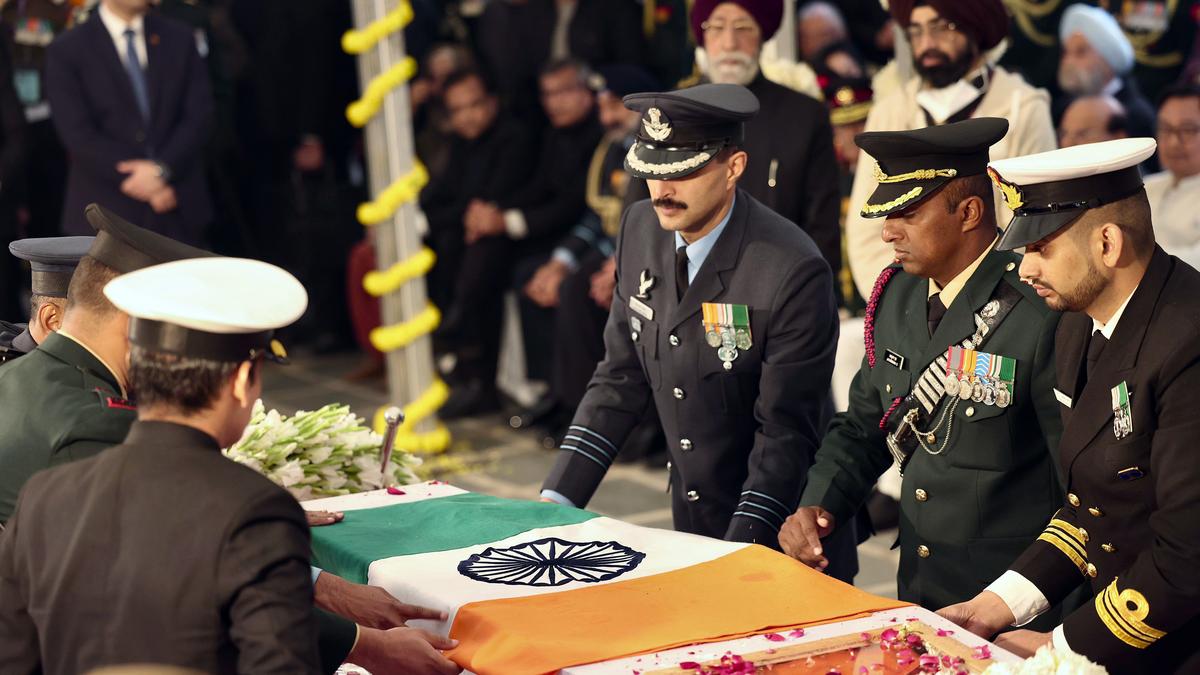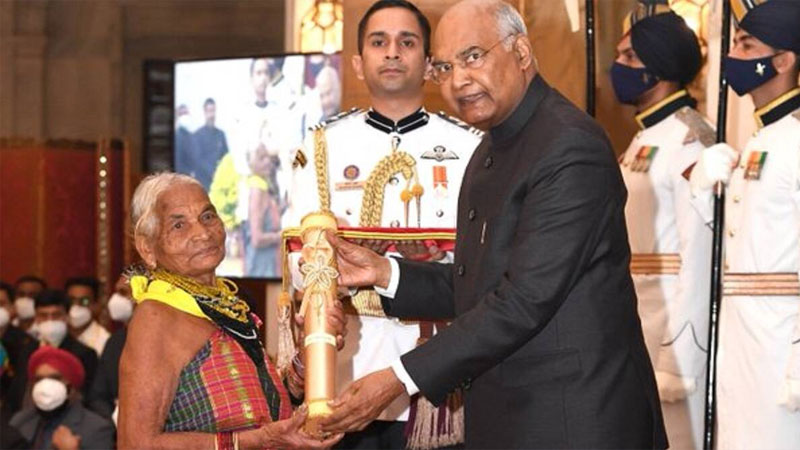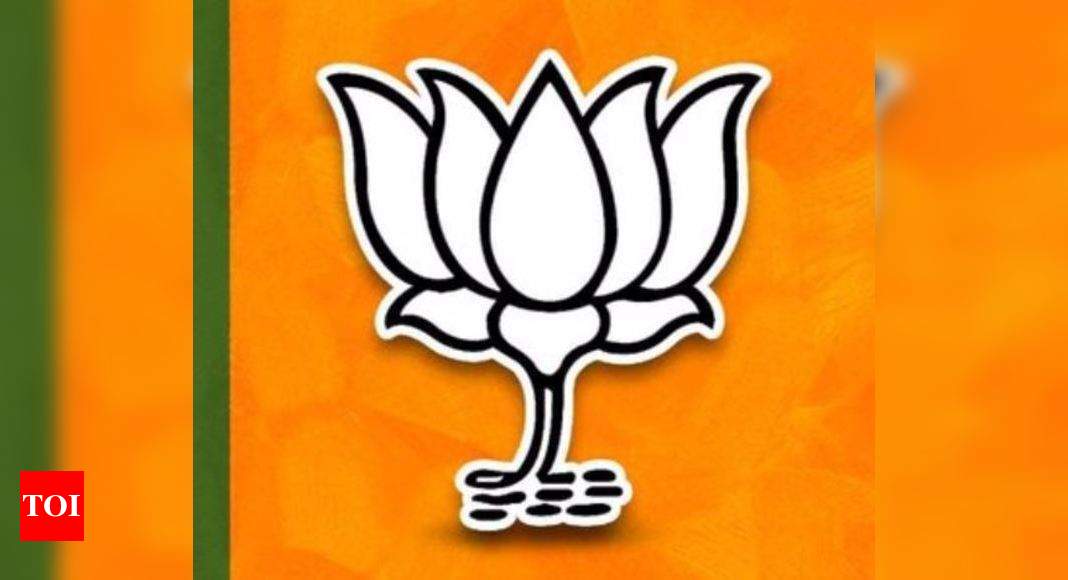The Govt policy, historical perspective on memorials dedicated to Prime Ministers
Governance
The national flag being draped on the mortal remains of former Prime Minister Dr. Manmohan Singh during his last rites with full state honours, at Nigam Bodh Ghat in New Delhi on December 28.
News in Brief
The Indian government’s policy on memorials for former prime ministers reflects a blend of cultural respect, historical recognition, and political considerations. Administered under the National Memorial Scheme by the Ministry of Culture, it provides financial and logistical support for memorials dedicated to eminent national figures, including former prime ministers.
New Delhi: The Indian government's policy on memorials for former prime ministers involves a blend of cultural respect, historical acknowledgment, and political considerations. This policy is primarily shaped by the Ministry of Culture, which administers the National Memorial Scheme aimed at honoring notable figures, including former prime ministers, who have contributed significantly to the nation's history and freedom struggle.
Historical Context and Policy Framework:
Historically, India has recognized the importance of memorializing its leaders, with several memorials established over the years. For instance, Raj Ghat in Delhi is a prominent example, serving as a memorial not only for Mahatma Gandhi but also hosting memorials for other significant leaders like Jawaharlal Nehru, Indira Gandhi, and Rajiv Gandhi, among others, under the umbrella of various ghats and sthalas. The policy has evolved to ensure that these memorials are not only places of remembrance but also of national pride and education.
The National Memorial Scheme, managed by the Ministry of Culture, outlines the criteria and processes for setting up or maintaining memorials. Under this scheme, financial assistance can be provided for the development or upkeep of memorials dedicated to eminent national personalities, including former prime ministers. The scheme categorizes memorials into those set up by government entities versus those by voluntary organizations or trusts.
-Government-Initiated Memorials: For these, the Ministry of Culture directly decides and funds from its budget.
- Memorials by Other Entities: Here, the government's financial support acts as a supplement to funds from state governments. The scheme excludes religious institutions from receiving grants under this category.
Financial and Administrative Details:
The financial assistance cap for a memorial is generally set at Rs.10 lakhs, with exceptions allowing up to Rs.20 lakhs under special circumstances, subject to the approval of the Culture Minister. An Expert Committee evaluates proposals, deciding on the grant amount. Grants are disbursed in installments contingent upon the submission of utilization certificates and audited accounts, ensuring accountability and proper use of funds.
Recent Developments and Political Dynamics:
Recent events, particularly with the passing of former Prime Minister Manmohan Singh, have brought this policy into sharp focus. Following his demise, there was significant political discourse around the location and nature of his memorial. Congress President Mallikarjun Kharge's request to Prime Minister Narendra Modi to hold Singh's last rites at a site where a memorial could be established led to debates, reflecting on past policies and practices. The government responded by confirming intentions to allocate space for a memorial, highlighting a tradition of honoring former prime ministers with state funerals and memorials, as seen with previous leaders like Atal Bihari Vajpayee.
Posts on X (formerly Twitter) have shown public and political sentiments on this matter, with some advocating for the government to honor leaders appropriately, while others question the need for new memorials in light of existing ones. This reflects the broader political and cultural dialogue on how best to commemorate national leaders.
Conclusion:
The Indian government's policy on memorials for former prime ministers is designed to respect and honor these figures' contributions to the nation's history and culture. It involves a structured approach to funding, location selection, and maintenance, ensuring that these memorials serve both as places of reflection and education for future generations. The policy, while generally consistent, adapts to contemporary political contexts, especially evident in the discussions following the death of notable leaders like Manmohan Singh.
Advertise with US
Advertise with US


